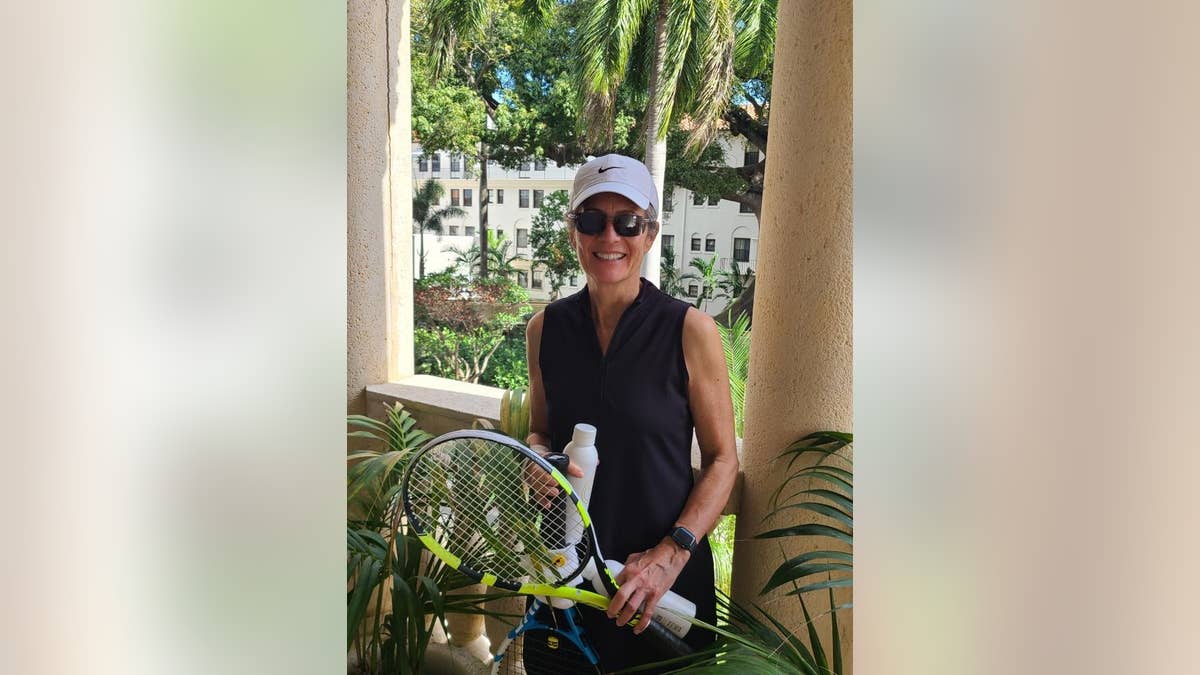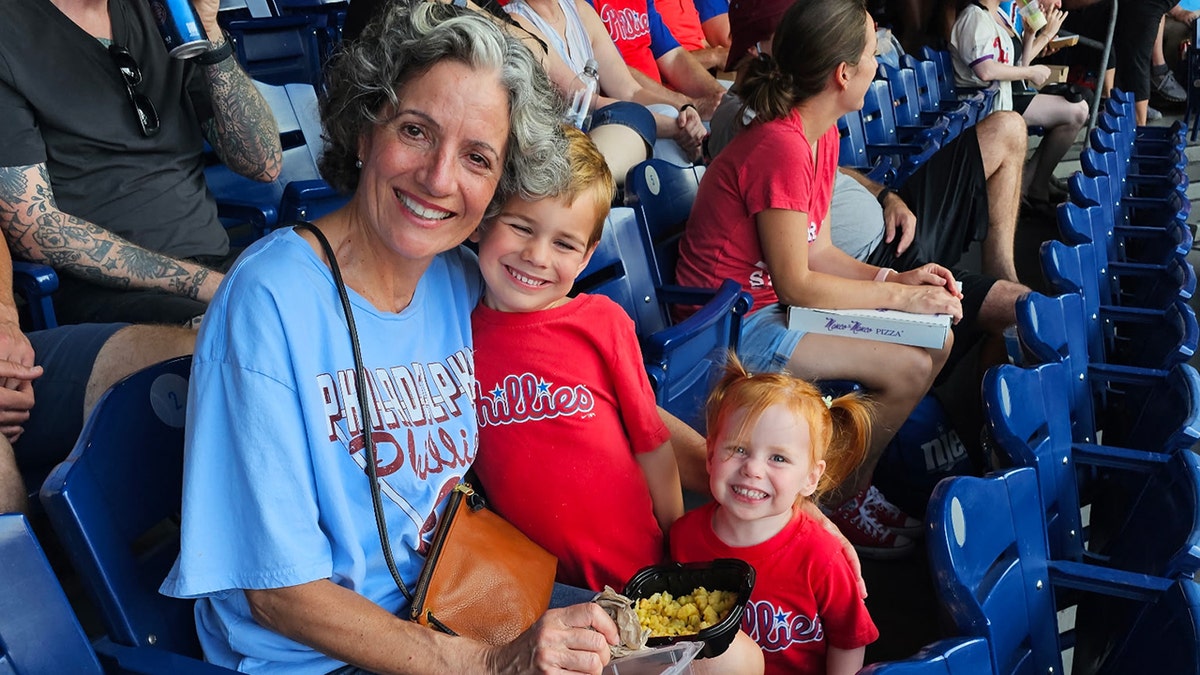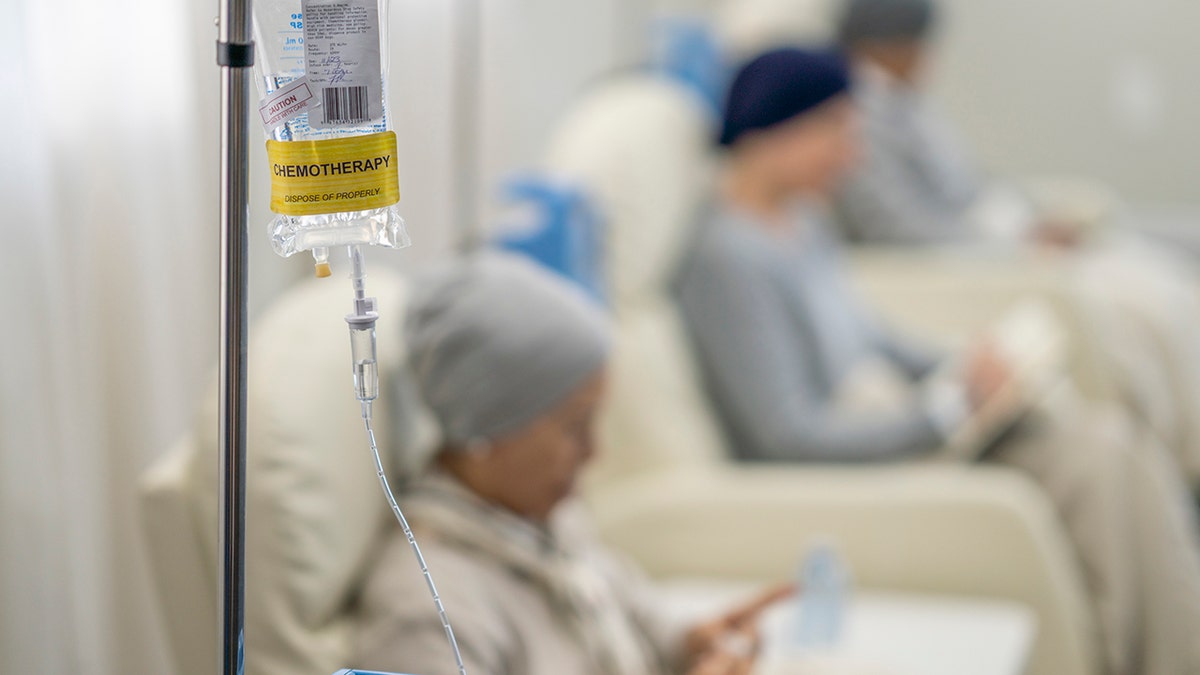NEWYou can now listen to Fox News articles!
A New Jersey woman has been given a second chance at life, thanks to a new cancer therapy.
Pamela Goldberger, 65, found out in 2023 that she had glioblastoma — a devastating diagnosis with an average survival of just 14 to 16 months, even with surgery.
In an on-camera interview with Fox News Digital, Goldberger shared that her first symptoms were subtle, other than a severe bout of nausea — until one night at dinner, she used her fork as her knife and her knife as her fork. (See the video at the top of the article.)
MAN’S DEADLY BRAIN CANCER TUMOR DISAPPEARS AFTER EXPERIMENTAL DRUG TRIAL
Goldberger went to the ER for neurological testing, including MRIs and a CAT scan, which revealed a brain tumor.
“It’s pretty devastating news to hear,” she said. “I don’t know what I thought was happening, but that wasn’t it … Our world just stopped.”
“We have two little grandchildren, and [I thought] I was never going to have the opportunity to see them grow up. I think that’s as devastating as it gets.”
Goldberger was admitted to the hospital and scheduled for brain surgery a few days later.
BRAIN CANCER PATIENTS WHO RECEIVED THIS PAIN MEDICATION LIVED LONGER, STUDY SHOWS
Surgery is standard treatment for this highly invasive brain cancer, but the head of neurosurgery at Cooper University Hospital in Camden, New Jersey, offered Goldberger a different option.
He invited Goldberger to consider joining a clinical trial for an individualized stem cell therapy that could help treat glioblastoma, and she agreed to participate.

After the surgery, Goldberger began six weeks of chemotherapy and radiation, and then started six weeks of the cell therapy a few weeks later. That process was followed by another year of chemo maintenance.
Although the healing process was “very gradual,” Goldberger said she started to feel like herself again once the oral chemotherapy ended.
Now, 2-½ years after her diagnosis, she is alive, healthy and able to play tennis several times a week.
Details of the clinical trial
Survival rates and treatments for glioblastoma have not changed in 20 years, according to Dr. Joseph Georges, a neurosurgeon at Banner University Hospital in Phoenix, Arizona, who led the clinical trial.
“It’s a highly mutated tumor and there are different cell populations for each patient,” he told Fox News Digital. “And the tumor is also very good at silencing the body’s immune system from attacking it.”
“It’s pretty devastating news to hear … Our world just stopped.”
The new treatment primes the immune system to detect and kill the tumor cell by creating a vaccine directly from the patient’s tumor, which is collected during surgery.
“We’re picking up all these various tumor cell types, and then we’re teaching the immune system how to attack the tumor — even the small cells that evade surgical resection,” Georges said.
TERMINAL COLON CANCER PATIENT SAVED BY BREAKTHROUGH TREATMENT
The treatment, which uses dendritic cells taken from patients, was administered to 16 people between 47 and 73 years old who were newly diagnosed with glioblastoma, including Goldberger.
After undergoing chemo and radiation, the patients received three courses of the injection every two weeks, along with weekly injections of a pegylated interferon medication (a type of protein that helps regulate the immune system).

The phase 1 clinical trial showed overall positive results, according to a press release from Diakonos Oncology, the group that developed the treatment, which is called DOC1021 (dubondencel).
The researchers noted positive immune responses and improved survival after treatment. It was also found to be safe with minimal side effects, even at high doses.
RARE SPINAL CANCER TUMOR REMOVED THROUGH PATIENT’S EYE AT UNIVERSITY HOSPITAL
“At best, we hope to keep it stable and hope that we don’t see it grow, but we are actually seeing tumors disappear for some of these people on their MRIs,” Georges told Fox News Digital, which is “something you don’t see in glioblastoma.”
“It’s truly amazing.”
‘Living my best life’
While Goldberger still has regular check-ins with her doctors, she reported that she’s feeling “good” and enjoying spending time with her grandchildren, playing tennis, having lunch with friends, reading, shopping and traveling.
“I’m living my best life right now, and I’m not restricted by not being able to do anything that I would want to do,” she told Fox News Digital.
For other glioblastoma patients, Goldberger recommends seeking out clinical trial opportunities if available and appropriate, and also urges them to take healing seriously.

“I was a really good patient. I did everything my doctors told me to do,” Goldberger said, noting that she walked every day, ate well and got plenty of sleep.
CLICK HERE TO SIGN UP FOR OUR HEALTH NEWSLETTER
“I surrounded myself with things that made me happy,” she went on. “Spent a lot of time with my grandchildren and my family … and only did things that made me happy.”
“I think all those things, put together with having excellent medical care and this trial, is the reason [I’m alive]. And a lot of luck.”
For more Health articles, visit www.foxnews.com/health
Georges agreed that patients with recurring glioblastoma should look for clinical trials that may help.
Diakonos Oncology announced on July 22 that the first patient has been dosed in the phase 2 clinical trial of DOC1021. Georges shared that the trial will be available at 20 sites around the country.
Read the full article here










